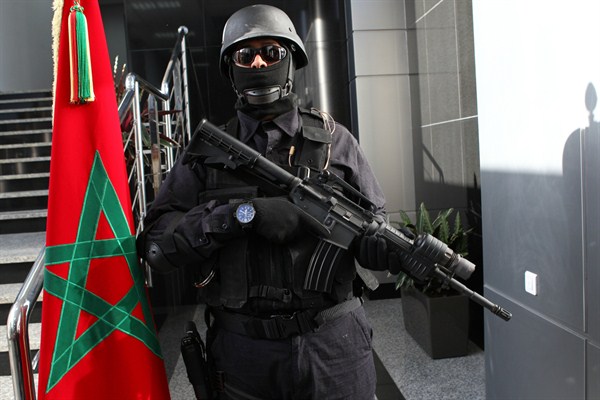Last week, the Long War Journal reported that the “self-proclaimed head of the Islamic State’s arm in the Sahara has reportedly threatened to attack Morocco,” according to an audio statement sent to Al Jazeera. The message’s authenticity has not been verified, and there has been no official media release of the tape. But it drew attention to the potential terror threats facing Morocco, which has for years taken pride in its domestic anti-radicalization programs and has emerged as an important counterterrorism partner for European countries, including France and Belgium. In 2014, the leader of the Islamic State (ISIS), Abu Bakr al-Baghdadi, made a similar threat against Morocco.
The recording’s validity aside, the article poses important questions about the existence of the Islamic State’s “Sahara arm,” which analysts such as Geoff Porter, of North Africa Risk Consulting and the United States Military Academy at West Point, quickly discounted on Twitter: “Morocco does have an ISIS problem,” he wrote, “but saying ISIS has a Western Sahara branch is not accurate.”
For Vish Sakthivel, an adjunct fellow at the Washington Institute for Near East Policy and a doctoral student the University of Oxford, the notion of a Sahara branch “raises the perennial question of ‘who is ISIS?’” The group’s deepening foothold in Libya, for example, has been well-documented, with regular Western strikes on training camps for the estimated 6,000 fighters there. Small but not insignificant numbers of U.S. Special Operation troops have also been stationed in Libya since late 2015.

